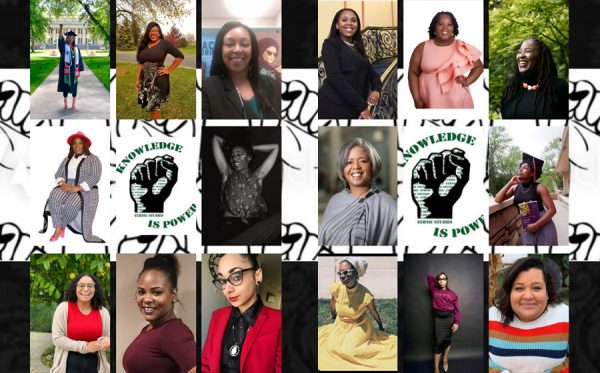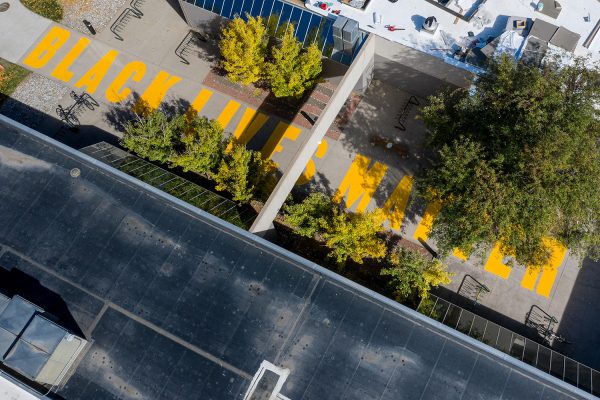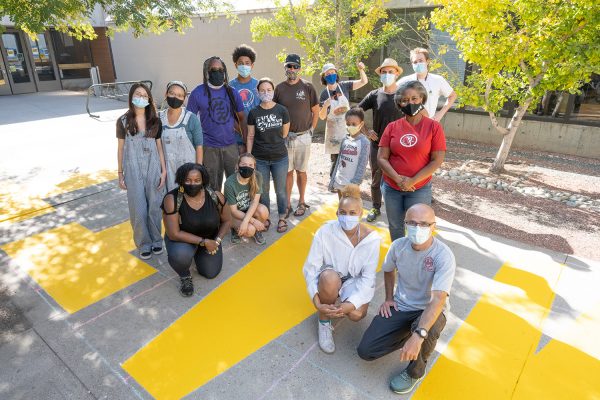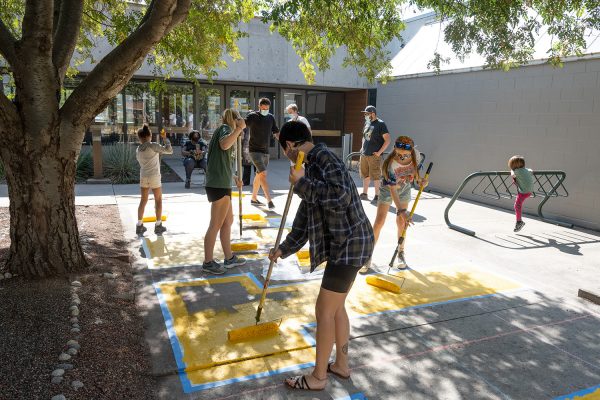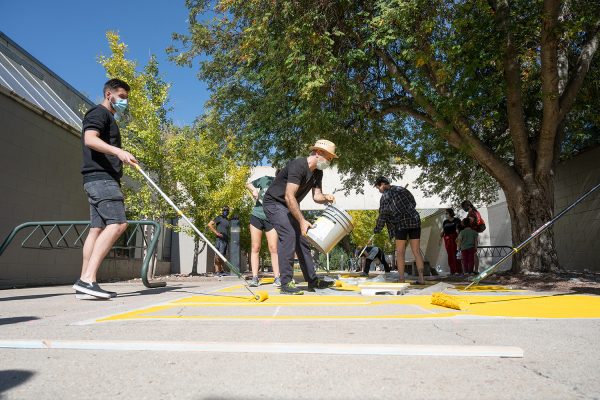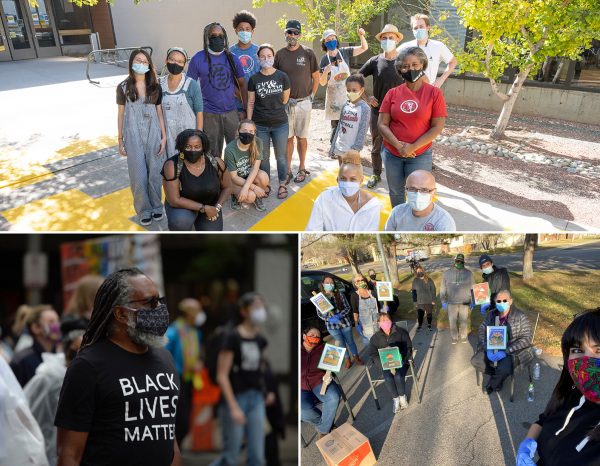
In the Department of Ethnic Studies, together we adapt, advocate, engage, and learn. From celebrating the harvest to the emancipation of the enslaved, from clothing drives to an engaged art walk, we connect with our communities to celebrate and to educate.
Together, we advance the human experience.
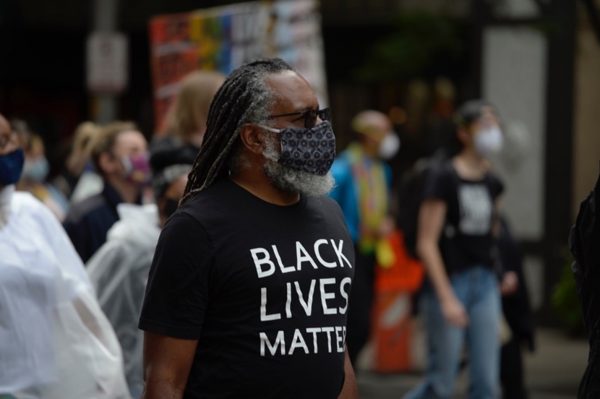
Advocate
On Friday, June 19, 2020, a non-violent Juneteenth March was held and organized by CSU students at the Denver Capitol. Following many months (on top of many centuries) of police brutality, social unrest, and relentless racial injustice, students and faculty in the Department of Ethnic Studies, felt this call to action and used their voices and their presence to practice the advocacy that is taught within the classroom. For this event, Ethnic Studies professor Ray Black was one of the chosen speakers who helped support, affirm, and uplift students.
Read more about the history and importance of Juneteenth.
Adapt
On November 19, 2020 Ron Hall and Ethnic Studies professor and Interim Vice President for Diveristy Roe Bubar sponsored the 6th Annual Arikara Farm Harvest Project in collaboration with the Native American Cultural Center. This event celebrates the harvest that Indigenous people have depended on for thousands of years for good health, medicine, and happiness. This year, COVID-19 protocols meant that they could not do a farm-to-table sit down dinner. With the support of donors, they provided harvest meals to be picked up, including fresh organic turkeys from Whole Foods and produce grown on their farm.
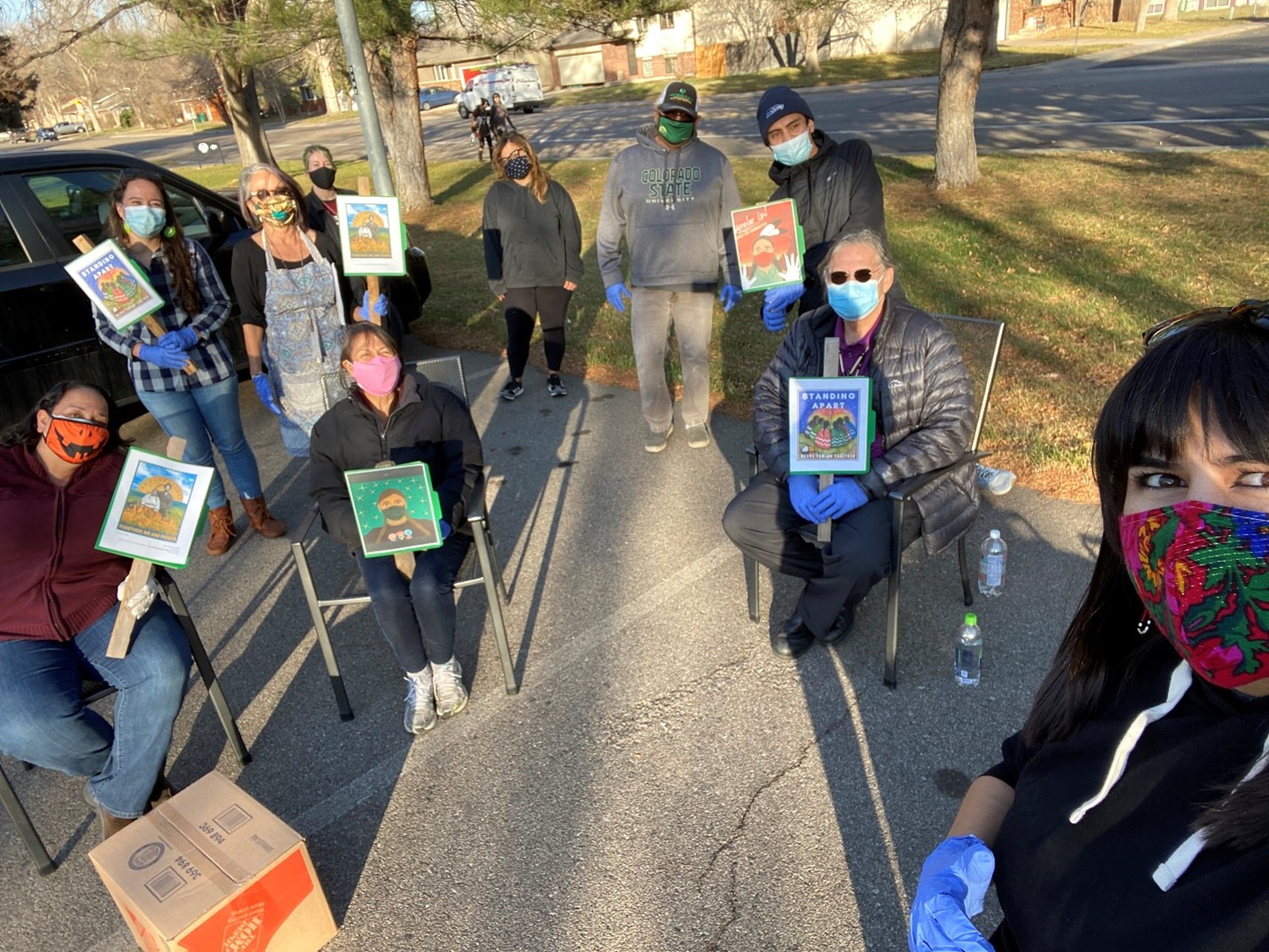
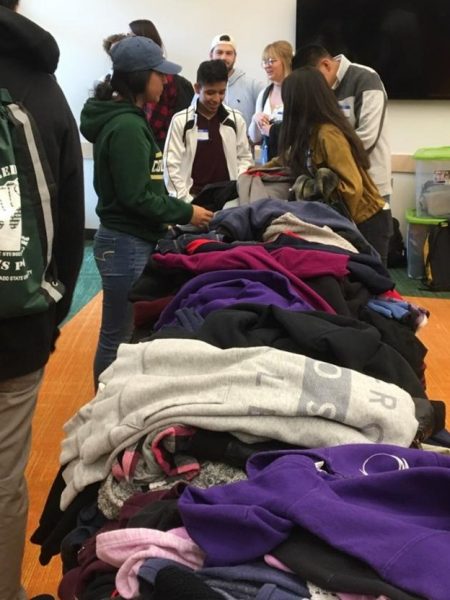
Organize
Ethnic Studies students from Dr. Eric Ishiwata's ETST 256: Border Crossings: People/Politics/Culture class organized a winter clothes drive for immigrant and refugee high school students in Fort Morgan High School's Migrant Education program. The visit included 90 students, group activities, and a jacket distribution.
Read more about Dr. Eric Ishiwata's work in Fort Morgan, including his newest health education initiative for Spanish- and Somali-speaking populations.
Engage
October 2020 was the launch of the first Engaged Art Walk, an arts-based community building project and an outdoor exhibition space that features rotating installations to integrate art, society, and education. In collaboration with the Black African American Cultural Center and the Ethnic Studies department, “Black Lives Matter” was emblazoned in yellow block lettering on the ground outside of the Visual Arts Building.
Read more about the Engaged Art Walk and series of events and art projects integrating art, education and civic engagement.

Investigate
Colorado State University has a long history of commitment to environmental initiatives and sustainability. With the creation of the Center for Environmental Justice in March 2020, CSU expanded their environmental expertise to include social justice. Environmental justice movements and scholars have examined issues of inequality ranging from water usage concerns to the infrastructure in the built environment. The Center engages with the CSU community by hosting symposiums and summits, organizing events, and teaching environmental justice courses.
Read more about how liberal arts are a key voice in this new interdisciplinary research center.
Learn
During both Black History Month and Women's History Month, instructor of Ethnic Studies Aaunterria Bollinger-Deters constructed a Zoom roundtable miniseries entitled, “The Things They Don't Tell You: A Panel About Black Women in Higher Education” for her course ETST 411: Black Feminism.
She invited Black women who have gone through higher education and/or work in higher education positions across the country to offer up their voices, expertise, and wisdom about their experiences. Each guest represented different disciplines – history, business, social work, English, student affairs, ethnic studies, and language arts – with varying academic levels. Her students were tasked with generating all questions for the invited panelists and leading the conversation about Black women in higher education.
